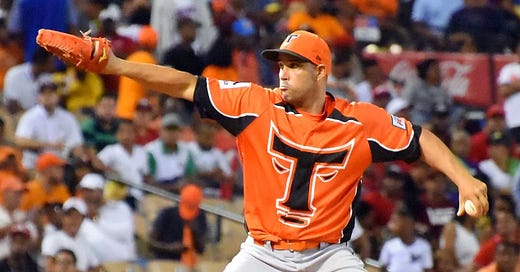When I remember the career of left-handed Raúl Valdés pitching with the Vaqueros del Habana in the National Series in the late nineties, there is an indelible moment in my memory. I remember his impact in the 1998 postseason, when he recorded a streak of 28 consecutive scoreless innings.
The beginning of that feat was against the Metropolitanos team, whi…



